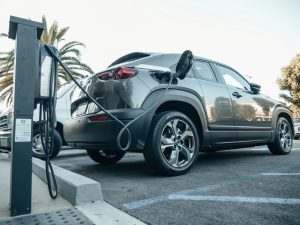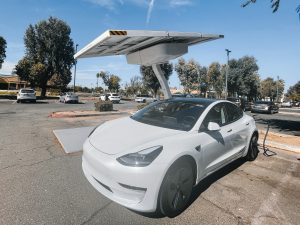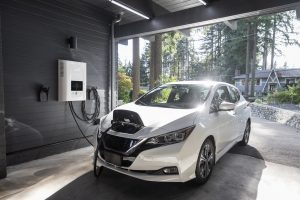Electric cars have become increasingly popular over the years, as the world shifts towards sustainable transportation and reducing our carbon footprint. However, just like anything else, electric cars have their own set of pros and cons. It’s important to weigh these factors and find ways to make the positive outweigh the negative, to ensure that electric cars remain a viable option for the future.
When it comes to electric cars, there are several benefits that make them a good choice for drivers seeking a reliable, cost-effective mode of transportation. Such as:
- Environmental Benefits: Electric cars produce significantly fewer emissions than traditional gasoline-powered vehicles. This can help reduce carbon emissions and combat climate change.
- Reduced Fuel Costs: Electricity is generally cheaper than gasoline as a fuel source, which means electric cars can help you save money on fuel costs.
- Smoother and Quieter Ride: Electric cars have fewer moving parts than traditional cars, which produce less noise and vibration. As a result, this can make for a more enjoyable driving experience.
- Lower Maintenance Costs: Electric cars have fewer parts that require regular maintenance or replacement, such as oil changes and engine tune-ups. This can reduce long-term maintenance costs.


While electric cars offer many benefits, they also come with certain drawbacks that can make them a less practical or convenient choice for some drivers.
- Limited Range: One of the biggest drawbacks of electric cars is their limited range compared to traditional vehicles. The range of electric cars varies depending on the model. Most electric cars can only go 100-200 miles on a single charge. This may not be suitable for long-distance road trips.
- Longer Charging Time: Charging an electric car can take significantly longer than filling up a traditional car with gasoline. Even fast-charging stations can take 30 minutes or more to charge the battery. This can be an inconvenience for drivers who need to keep to a tight schedule.
- Higher Upfront Costs: Electric cars are generally more expensive than their traditional gasoline-powered counterparts. Although the fuel savings over time can help offset the hefty price tag, the higher initial investment can be a barrier for many consumers.
- Limited Charging Infrastructure: Despite growing numbers of charging stations being built, the infrastructure is still limited, particularly in rural areas. This can make it difficult for electric car drivers to find a charging station when they need it.


Balancing the Pros and Cons
It’s important to take steps to address the cons of electric cars and maximize the pros. Some ways this can be accomplished include:
- Increase Range: One way to address the limited range of electric cars is to invest in battery technology that can provide increased driving distance on a single charge. Manufacturers can also work to optimize the efficiency of charging systems and reduce the drain on the battery.
- Improve the Charging Infrastructure: Expand the charging infrastructure to make it more convenient for electric car drivers. Steps should also be taken to provide faster, more efficient charging options.
- Incentivize Electric Cars: Providing incentives such as tax credits and rebates may offset the higher upfront costs of electric cars.
- Improve Public Awareness: Enhanced public awareness about the benefits of electric cars may encourage more consumers to choose them as their primary mode of transportation.
Electric cars have the potential to play a major role in reducing carbon emissions and helping to tackle climate change. It’s important to acknowledge and address the drawbacks, but to also keep an open mind to ensure that electric cars remain a reliable option. By investing in battery technology, strengthening the charging infrastructure, offering incentives, and increasing public awareness, the benefits can outweigh the drawbacks.